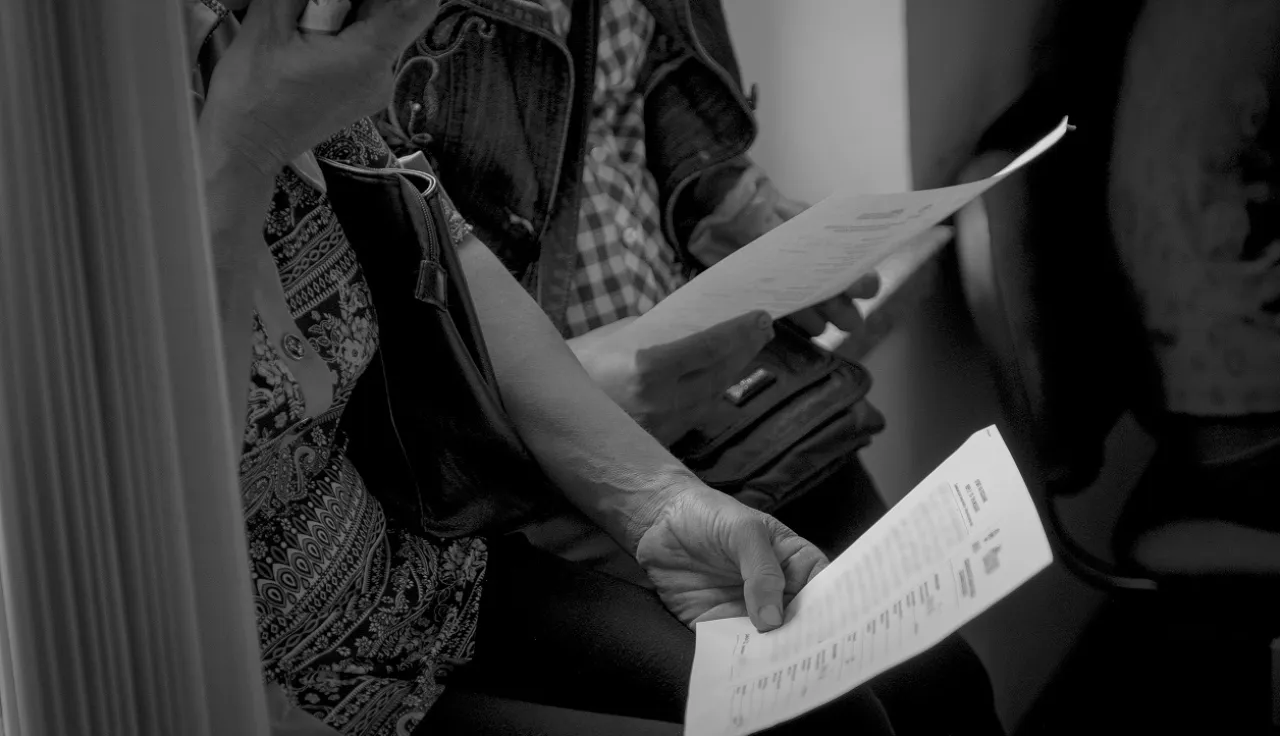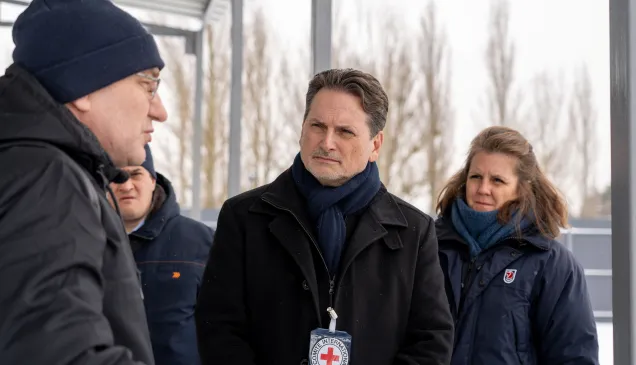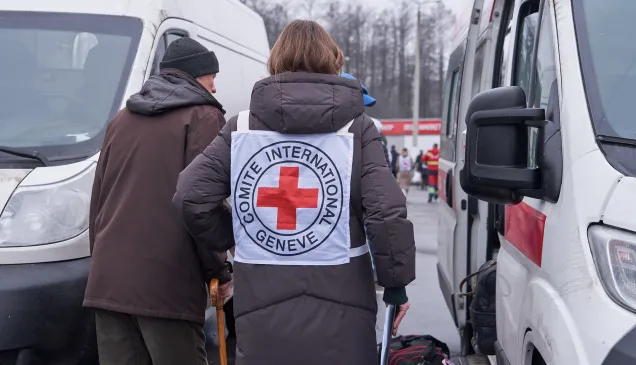“Tell him we love him deeply”: Families of prisoners of war are desperate for answers

As the international armed conflict between Russia and Ukraine grinds on, families of prisoners of war (POWs) are desperate for answers about their loved ones. The International Committee of the Red Cross (ICRC) is dedicating important resources to help them in such difficult times, an activity at the core of its mandate for over 150 years.
"Please tell my husband that we all look forward to his return. His daughter and wife are waiting for him. Tell him we love him deeply."
Maria* and her daughter are just one of thousands of families of POWs who have contacted the International Committee of the Red Cross (ICRC) in recent months desperate for news of their loved ones. Since February, the ICRC has received more than 17,000 calls and emails from people looking for news of their relatives. Many of those callers are families of POWs, who commonly feel frustration, anger, and helplessness as they go for weeks and months without hearing from their loved ones.
Sasha*, a mother looking for her son, told our team: "I don't have any more strength. I hope so much that he is fine."
Prisoners of war and the Geneva Conventions
The 1949 Geneva Conventions—which all countries in the world have signed—are clear that in international armed conflicts, POWs and civilians are protected and the ICRC must be allowed to visit civilians deprived of their liberty and all POWs, regardless of what side they were fighting on. However, while the ICRC has been able to visit some POWs and other detainees, it hasn't been granted access to visit them all.
The ICRC must have full access to POWs and civilian internees, wherever they are held, to assess their treatment and conditions of detention, and to reassure their families.
This right of access, enshrined in international humanitarian law, is non-negotiable – as is the obligation of parties to notify the ICRC of all prisoners of war in their control. Families also have the right to know what has happened to their loved ones.
Robert Mardini, ICRC's director-general
ICRC's visits to POWs help ensure respect for their life and dignity by reminding the detaining authorities that the captives' treatment and their conditions of internment or detention must correspond to standards laid down by international humanitarian law (IHL). This includes access to medical care, food, and water. They also cannot be tortured, intimidated, or exposed to violence. In addition, they must be shielded from public curiosity.
ICRC's Central Tracing Agency
Under the Geneva Conventions parties to the international armed conflict between Russia and Ukraine must also share information about POWs and other protected civilians deprived of their liberty, alive or dead, through their national information bureaus (or equivalent) to the ICRC's Central Tracing Agency (CTA).
In March, the ICRC established a dedicated bureau of the CTA, which works specifically on the international armed conflict between Russia and Ukraine, in order to act as a neutral intermediary between the Parties and alleviate the suffering of families who remain without news of their loved ones, both military and civilians, as a result of the armed conflict, either because they have fallen into the hands of the enemy or because they fled their homes and have lost contact. Additionally, the CTA Bureau, in coordination with its wider network of ICRC delegations and Red Cross and Red Crescent national societies, helps any families who have been separated due to the armed conflict to find their relatives.
Since February 2022, the ICRC has received and transmitted information on thousands of cases, some of which are about POWs whereabouts, health, and other personal details. The information is shared with the parties and with families.
"This information will still be available in five months or in 50 years," said Florence Anselmo, the head of the ICRC's Central Tracing Agency. "It is essential to keep a record of the whereabouts of POWs not just while fighting is raging, but also for future generations, for their children and grandchildren who might one day express the desire to know what happened to their relative."
"I just want him to return alive"
"Receiving news of a loved one, who has been captured, is a huge relief. But it lasts for seconds only, the worry never disappears. People ask us: when was the last time we heard from them? Are they still okay? What now, what next? They feel desperate and helpless," said Anselmo.
Through the CTA, the ICRC has provided more than 2,000 families with information about their loved ones, including POWs, since February 2022.**
"Last time I heard from my son is over a month ago. He has asked me to send him clothes, so since then I have been sewing models he may like. I am so worried for his mental health, what he eats and drinks. I just want him to return alive," said Natalia.*
But many more mothers, fathers, brothers, sisters, sons and daughters need and deserve answers.
"We know that families are suffering under the weight of not knowing how their loved ones are, whether they are healthy or sick, or even whether they are alive or dead," said Mardini. "We will not rest until we have access to all people deprived of their liberty in this armed conflict. Access to just some is simply not good enough. And we will not rest until their loved ones get the answers they need and deserve."
*Names have been modified.
**This includes families of POWs as well as other situations such as people looking for a relative.



